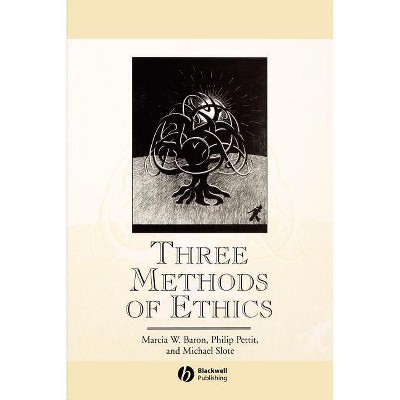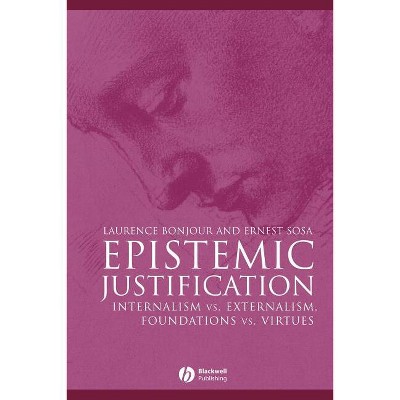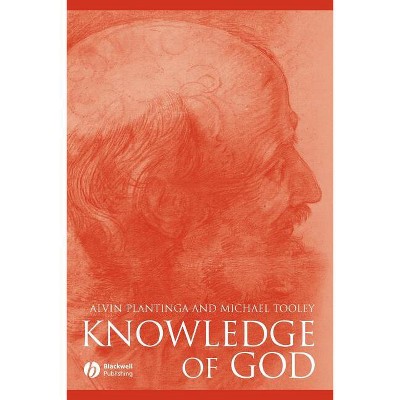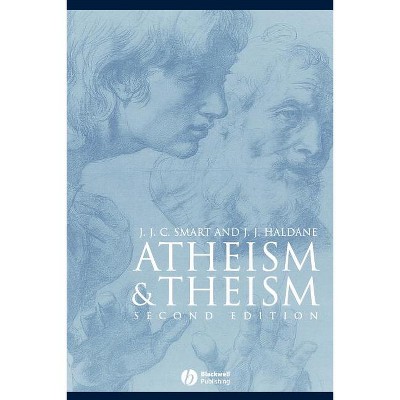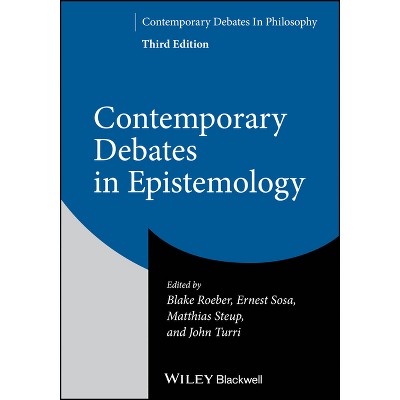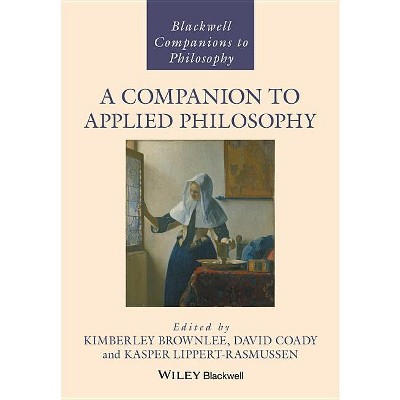Expression and Self-Knowledge - (Great Debates in Philosophy) by Dorit Bar-On & Crispin Wright (Paperback)

About this item
Highlights
- Provides a timely and original contribution to the debate surrounding privileged self-knowledge Contemporary epistemologists and philosophers of mind continue to find puzzling the nature and source of privileged self-knowledge the ordinary and effortless 'first-person' knowledge we have of our own sensations, moods, emotions, beliefs, desires, and hopes.
- About the Author: DORIT BAR-ON is Professor of Philosophy at the University of Connecticut and Director of the Expression, Communication, and the Origins of Meaning Research Group which she established in 2010, while at the University of North Carolina, Chapel Hill.
- 368 Pages
- Philosophy, Ethics & Moral Philosophy
- Series Name: Great Debates in Philosophy
Description
About the Book
"This Great Debates volume grew out of exchanges that followed the 2012 publication of a Festschrift volume for Crispin Wright, just over a decade ago (Coliva 2012). As often happens in Philosophy, the process of trying to clarify and iron out apparently local points of disagreement between us has unearthed deeper divergences concerning larger issues in the philosophy of language and mind, in epistemology, and in the theory of action. Such is our profession"--Book Synopsis
Provides a timely and original contribution to the debate surrounding privileged self-knowledge
Contemporary epistemologists and philosophers of mind continue to find puzzling the nature and source of privileged self-knowledge the ordinary and effortless 'first-person' knowledge we have of our own sensations, moods, emotions, beliefs, desires, and hopes.
In Expression and Self-Knowledge, Dorit Bar-On and Crispin Wright articulate their joint dissatisfaction with extant accounts of self-knowledge and engage in a sustained and substantial critical debate over the merits of an expressivist approach to the topic. The authors incorporate cutting-edge research while defending their own alternatives to existing approaches to so-called 'first-person privilege'.
Bar-On defends her neo-expressivist account, addressing the objection that neo-expressivism fails to provide an adequate epistemology of ordinary self-knowledge, and addresses new objections levelled by Wright. Wright then presents an alternative pluralist approach, and Bar-On argues in response that pluralism faces difficulties neo-expressivism avoids. Providing invaluable insights on a hotly debated topic in epistemology and philosophy of mind, Expression and Self-Knowledge:
- Presents an in-depth debate between two leading philosophers over the expressivist approach
- Offers novel developments and penetrating criticisms of the authors' respective views
- Features two different perspectives on the influential remarks on expression and self-knowledge found in Wittgenstein's later writings
- Includes four jointly written chapters that offer a critical overview of prominent existing accounts, which provide a useful advanced introduction to the subject.
Expression and Self-Knowledge is essential reading for epistemologists, philosophers of mind and language, psychologists with an interest in self-knowledge, and researchers and graduate students working in expression, expressivism, and self-knowledge.
From the Back Cover
Contemporary epistemologists and philosophers of mind continue to debate the perplexing nature of our apparently privileged psychological self-knowledge -- the special, first-personal knowledge we are routinely taken to have of our own sensations, moods, emotions, beliefs, desires, memories, perceptions, thoughts, imaginings, and intentional actions. In Expression and Self-Knowledge, Dorit Bar-On and Crispin Wright engage in a sustained critical debate concerning the best approach for achieving a philosophical understanding of this type of knowledge. Their debate focuses pre-eminently on the expressivist idea that a satisfactory explanation will need to assign a leading role to our capacity to manifest our mental states in expressive behaviour and speech.
In the first part of the book, the authors join to provide a penetrating critical overview of other existing approaches to privileged self-knowledge, before going on to present and debate their own contrasting views of its provenance. The discussion develops and addresses new criticisms of the expressivist approach, engaging broad issues in epistemology, philosophy of language, and philosophy of mind, and offering divergent perspectives on the remarks on the issues in Wittgenstein's Philosophical Investigations.
Expression and Self-Knowledge incorporates cutting-edge research and offers invaluable insights on a hotly debated topic in contemporary philosophy. It is essential reading for epistemologists, philosophers of language and mind, psychologists with an interest in introspection, and all advanced students working in the area.
About the Author
DORIT BAR-ON is Professor of Philosophy at the University of Connecticut and Director of the Expression, Communication, and the Origins of Meaning Research Group which she established in 2010, while at the University of North Carolina, Chapel Hill. She specializes in philosophy of language and mind, epistemology, and metaethics, and has published on topics such as translation, conceptual relativism, expression and expressivism, and origins of meaning.
CRISPIN WRIGHT is Professor of Philosophical Research at the University of Stirling. Specializing in epistemology, the philosophies of language and mathematics and the later Wittgenstein's philosophy, he has taught at leading universities including Oxford, Columbia, Princeton, and St. Andrews, where he founded the philosophical research center, Arché.
Shipping details
Return details
Trending Poetry






